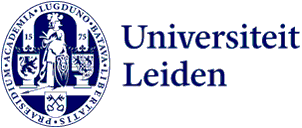Step-by-step plan towards more impact
An important question being asked, both in the academic world and in society, concerns the impact of our research and education. By providing a well-supported answer, we not only create a strong position for our research, we also increase our chances of success in applying for research grants and retaining our current sources of finding. The University offers different forms of support to help you achieve maximum impact. Below is a step-by-step plan to help you map your impact.
Step 1: What is your vision?
Achieving impact begins with a vision. How will you make sure that your knowledge will reach society? Or that your research remains in line with society’s needs? In formulating your vision, try to answer the following questions: For what purpose? What is it? Towards what? For whom? With whom? And how? If you would like to know more, the Rathenau Institute produces publications on the social effects of new technologies and has written a very good article on how to develop an impact strategy.
Step 2: Which forms of impact fit you and your vision?
You can achieve impact in a myriad of ways. Each researcher will have his or her own way. In order to help you discover which form of impact best matches your research, we have created the Leiden Impact Matrix. Or you can follow one of the Luris training programmes or consult various experts within and outside the University:
- The Leiden University Knowledge Exchange Office
Luris can help you formulate or improve your impact strategy for research at individual, institute or Faculty level. Please contact the Knowledge Partnering team or the Grant Development team. - For impact at institute and Faculty level, you can also seek advice from the Department of Academic Affairs.
- If you are looking for an experienced fellow researcher or lecturer within the University to brainstorm on the impact of your research, Luris can help you find the right person.
- The Leiden Centre for Science and Technology Studies has its own research programme entitled ‘societal impact of research group’.
- Leiden also has a Chair in Science Communication and the Faculty of Science conducts research on Science, Communication and Society.
- Consult the self-assessments conducted in the context of external research assessments. These also devote attention to impact.
Step 3: Learn from good examples
Impact is already visible in many forms. The examples below may help you formulate your own impact:
- Get to know us: Files on Leiden researchers
- Academic files on the Leiden University website
- Blogs by Leiden staff members on research and education
- Faculty of Science: Science for Society
- Aspects of Globalisation (publication)
- Focus on Valorisation (publication)
- Articles on Leiden research, education and impact in the NRC supplement ‘Leiden Knowledge City’
- Leiden Science: Our Talents & Discoveries in 2015
- Consult case studies in Luris’ annual report
- Examples of impact in the research of the Faculty of Law
- Looking forward to the future with Leiden science (2015) (pdf)
Step 4: Use the University network
There are many initiatives that help strengthen the impact of Leiden University. Find out how to increase your scientific and societal impact. We would be very interested to hear about the steps you take in this area, so that we can share your knowledge and experience with other researchers.
More information
If you have any questions, the Department of Academic Affairs will gladly help you.
